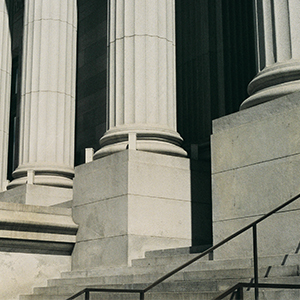Craig v Missouri Interprets Prohibition of Bills of Credit Under Article I
Historical
In Craig v Missouri, 29 U.S. 410 (1830), the U.S. Supreme Court held that a Missouri statute authorizing loan certificates issued by the state violated Article I, section 10 of the Constitution, which prohibits states from issuing bills of credit.
The Facts of Craig v Missouri
Section 10 of Article I of the Constitution states that “no State shall . . . emit bills of credit; [or] make anything but gold and silver coin a tender in payment of debts.” However, prior to Craig v. Missouri, the Supreme Court had not interpreted the meaning of the term “bills of credit.”
The State of Missouri issued certain interest bearing certificates, not declared legal tender, but receivable at the treasury of any of the loan offices of the State in discharge of taxes or payment of debts due to the State. Certain property of the State was pledged to their redemption, and the governor was authorized to negotiate a loan of silver or gold for the same purpose. These certificates could be loaned to citizens of the States upon real estate or personal security.
The Court’s Decision in Craig v Missouri
By a vote of 4-3, the Supreme Court struck down the state statute, concluding that the certificates were illegally emitted as bills of credit. Chief Justice John Marshall wrote on behalf of the majority. As he explained:
In its enlarged, and perhaps its literal sense, the term ‘bill of credit’ may comprehend any instrument by which a State engages to pay money at a future day; thus including a certificate given for money borrowed. But the language of the Constitution itself, and the mischief to be prevented, which we know from the history of our country, equally limit the interpretation of the terms. The word ’emit’ is never employed in describing those contracts by which a State binds itself to pay money at a future day for services actually received, or for money borrowed for present use; nor are instruments executed for such purposes, in common language, denominated ‘bills of credit.’ To ’emit bills of credit’ conveys to the mind the idea of issuing paper intended to circulate through the community for its ordinary purposes, as money, which paper is redeemable at a future day.
The Supreme Court reversed course seven years later. In Briscoe v. Bank of Kentucky , 36 U.S. 257 (1837), the Court upheld a currency scheme in which a state bank issued notes payable on demand to the bearer that served as a circulating medium. “To constitute a bill of credit within the Constitution, it must be issued by a State, on the faith of the State, and be designed to circulate as money. It must be a paper which circulates on the credit of the State, and is so received and used in the ordinary business of life,” the Court held. “The individuals or committee who issue the bill must have the power to bind the State: they must act as agents, and of course do not incur any personal responsibility, nor impart, as individuals, any credit to the paper. These are the leading characteristics of a bill of credit, which a State cannot emit.”
Previous Articles
SCOTUS Decision in Bowe v. United States Is First of the 2026 Term
by DONALD SCARINCI on February 5, 2026
In Bowe v. United States, 607 U.S. ___ (2026), the U.S. Supreme Court held that Title 28 U.S.C. § ...
SCOTUS Rules State Can’t Immunize Parties from Federal Civil Liability
by DONALD SCARINCI on January 29, 2026
In John Doe v. Dynamic Physical Therapy, LLC, 607 U.S. ____ (2025) the U.S. Supreme Court held that...
Supreme Court to Address Racial Discrimination in Jury Selection
by DONALD SCARINCI onWhile the U.S. Supreme Court has concluded oral arguments for the year, it continues to add cases t...
The Amendments
-
Amendment1
- Establishment ClauseFree Exercise Clause
- Freedom of Speech
- Freedoms of Press
- Freedom of Assembly, and Petitition
-
Amendment2
- The Right to Bear Arms
-
Amendment4
- Unreasonable Searches and Seizures
-
Amendment5
- Due Process
- Eminent Domain
- Rights of Criminal Defendants
Preamble to the Bill of Rights
Congress of the United States begun and held at the City of New-York, on Wednesday the fourth of March, one thousand seven hundred and eighty nine.
THE Conventions of a number of the States, having at the time of their adopting the Constitution, expressed a desire, in order to prevent misconstruction or abuse of its powers, that further declaratory and restrictive clauses should be added: And as extending the ground of public confidence in the Government, will best ensure the beneficent ends of its institution.





